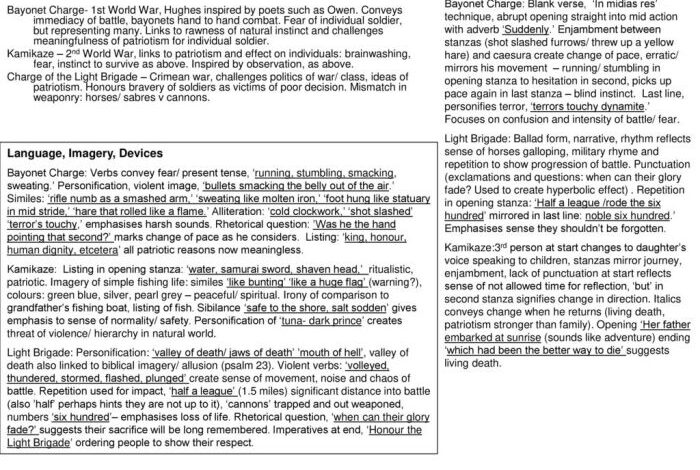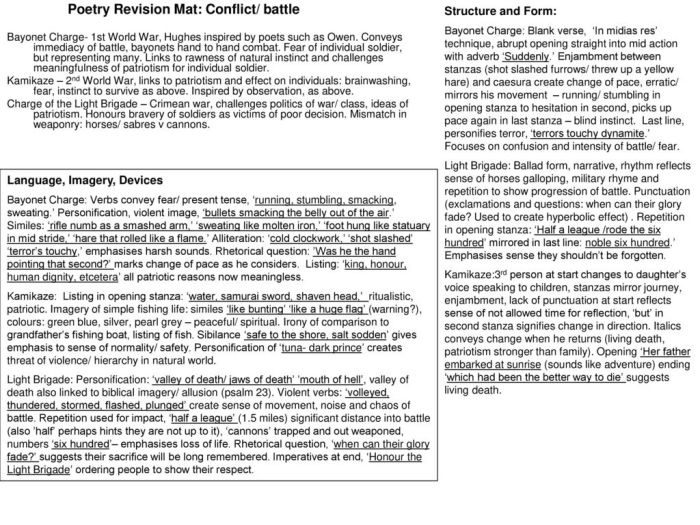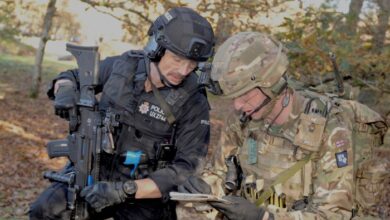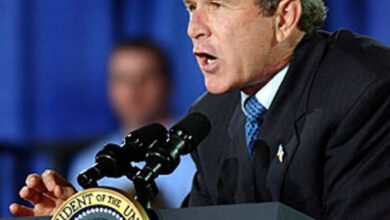
War on Terror or War on Liberties: A Balancing Act?
War on Terror or War on Liberties: A Balancing Act? The phrase itself evokes a complex and often controversial debate. Since the September 11th attacks, the United States has been engaged in a global “War on Terror,” leading to sweeping security measures that have raised concerns about the erosion of civil liberties.
This article delves into the historical context, impact on liberties, international implications, and ethical considerations surrounding this ongoing struggle.
The “War on Terror” has reshaped global security and political discourse. It has spurred significant changes in national security policies, with implications for individual rights, international relations, and the very fabric of democracy. Understanding the complexities of this debate is crucial in navigating the delicate balance between security and liberty.
Historical Context: War On Terror Or War On Liberties
The “War on Terror” is a term that emerged in the aftermath of the September 11th attacks, marking a significant shift in global politics and security discourse. This era was defined by a heightened focus on counterterrorism measures, military interventions, and a global struggle against perceived threats emanating from extremist groups.The events of September 11th, 2001, served as a catalyst for the “War on Terror.” The coordinated attacks on the World Trade Center and the Pentagon, carried out by al-Qaeda, shocked the world and propelled the United States into a new era of global security.
In response to these attacks, the U.S. government launched a multi-faceted campaign aimed at dismantling terrorist networks, preventing future attacks, and promoting international cooperation in the fight against terrorism.
The Bush Administration and the Initial Phases of the “War on Terror”
Following the September 11th attacks, the Bush administration declared a “War on Terror” and initiated a series of military actions and policy changes. The initial phases of the “War on Terror” were characterized by a strong emphasis on military force, with the U.S.
launching invasions of Afghanistan and Iraq. These interventions aimed to dismantle al-Qaeda and other terrorist organizations, remove regimes deemed supportive of terrorism, and establish a more stable and secure global order.The Bush administration also implemented a number of domestic policies aimed at enhancing national security, including the creation of the Department of Homeland Security, the passage of the Patriot Act, and increased surveillance measures.
These policies were designed to improve intelligence gathering, prevent future attacks, and enhance border security.
The Obama Administration and the Evolution of the “War on Terror”
The Obama administration inherited a complex and evolving “War on Terror” from its predecessor. While continuing to pursue counterterrorism operations, the Obama administration sought to shift the focus from military intervention to a more comprehensive strategy that included diplomacy, development, and counter-radicalization efforts.The Obama administration also made efforts to close the Guantanamo Bay detention camp, reduce the use of drone strikes, and promote transparency in counterterrorism operations.
The “war on terror” has often been used to justify eroding civil liberties, but there’s another, less talked about, threat to democracy: the erosion of public trust through tax avoidance and havens undermining democracy. When the wealthy and powerful can avoid paying their fair share, it undermines the very foundation of a fair and just society, making it harder to fund essential services and protect the rights of all citizens.
Ultimately, both the “war on terror” and the war on fairness are battles that threaten the very fabric of our freedoms.
However, the Obama administration also expanded the use of targeted killings and continued to engage in military operations in Afghanistan, Iraq, and other countries.
The Trump Administration and the “War on Terror”
The Trump administration marked a departure from the previous two administrations in its approach to the “War on Terror.” The Trump administration emphasized a more aggressive and unilateral approach, with a renewed focus on military force and a more skeptical stance towards international cooperation.The Trump administration also implemented a number of policies aimed at restricting immigration, increasing border security, and enhancing surveillance capabilities.
These policies were driven by a perceived need to protect the U.S. from terrorism, but they also raised concerns about civil liberties and the potential for discrimination.
Comparing and Contrasting the Rhetoric and Policies of Different Administrations
While all three administrations have shared the goal of combating terrorism, their rhetoric and policies have differed significantly. The Bush administration’s approach was characterized by a strong emphasis on military force and a clear distinction between “us” and “them.” The Obama administration sought to shift the focus from military intervention to a more comprehensive strategy that included diplomacy, development, and counter-radicalization efforts.
The Trump administration, in contrast, emphasized a more aggressive and unilateral approach, with a renewed focus on military force and a more skeptical stance towards international cooperation.The different administrations have also adopted varying approaches to domestic counterterrorism measures. The Bush administration implemented a number of policies aimed at enhancing national security, including the creation of the Department of Homeland Security, the passage of the Patriot Act, and increased surveillance measures.
The Obama administration sought to reform these policies, but it also expanded the use of targeted killings and continued to engage in military operations in Afghanistan, Iraq, and other countries. The Trump administration, in turn, has implemented a number of policies aimed at restricting immigration, increasing border security, and enhancing surveillance capabilities.The “War on Terror” has been a defining feature of global politics since the September 11th attacks.
The different administrations have each approached this challenge in their own way, with varying degrees of emphasis on military force, diplomacy, and domestic security measures. The “War on Terror” continues to be a complex and evolving issue, with ongoing debates about the effectiveness of different strategies and the balance between security and civil liberties.
Impact on Liberties
The “War on Terror” has had a profound impact on civil liberties in the United States and other countries. In the name of national security, governments have implemented numerous laws, policies, and practices that have restricted freedoms and raised concerns about the balance between security and liberty.
Surveillance and Privacy
The government’s ability to collect and analyze vast amounts of personal data has expanded significantly since 9/11. The Patriot Act, passed in 2001, broadened the government’s surveillance powers, allowing for warrantless searches of phone records, email communications, and other personal data.
The National Security Agency (NSA) has also been involved in widespread surveillance programs, collecting data on millions of Americans and foreign nationals.
“The government is not the only entity that can conduct mass surveillance. Private companies also play a significant role in collecting and analyzing data. This data can be used for a variety of purposes, including targeted advertising, credit scoring, and even predicting future behavior.”
The debate over whether the “war on terror” actually became a “war on liberties” is a complex one, often fueled by the media’s narrative. The media’s constant barrage of fear-mongering and sensationalism, as seen in the media’s battle cry , can contribute to a climate of distrust and suspicion, leading to the erosion of civil liberties.
Ultimately, the responsibility lies with each individual to critically evaluate information and resist the urge to sacrifice freedoms in the name of security.
- The Patriot Act has been criticized for its broad language and its potential for abuse. Critics argue that it has allowed the government to overreach its surveillance powers and violate the privacy rights of innocent individuals.
- The NSA’s surveillance programs have been the subject of much controversy, with concerns raised about the scope of data collection and the potential for government overreach.
- The use of facial recognition technology has also raised privacy concerns, as it can be used to track individuals’ movements and identify them without their consent.
Freedom of Speech and Expression
The “War on Terror” has also led to restrictions on freedom of speech and expression. The government has cracked down on individuals and groups that are perceived as threats to national security, including those who criticize government policies or engage in political dissent.
- The government has used laws like the Espionage Act and the Sedition Act to prosecute individuals who have spoken out against government policies or leaked classified information.
- The government has also targeted individuals and groups for their religious beliefs or political affiliations, often labeling them as “terrorists” or “extremists.”
- The “War on Terror” has created a climate of fear and intimidation, leading to self-censorship and a chilling effect on free speech.
Due Process and Detention
The government has also been accused of violating the due process rights of individuals in the name of national security. The use of indefinite detention, secret trials, and torture has been widely criticized as a violation of basic human rights.
- The government has detained individuals without charge or trial for extended periods, often based on flimsy evidence or accusations.
- The use of secret trials has deprived individuals of their right to a fair trial and access to legal counsel.
- The government has used torture and other cruel, inhuman, or degrading treatment against individuals suspected of terrorism.
International Implications

The “War on Terror” has had a profound impact on international relations, reshaping alliances, influencing global security dynamics, and fostering both cooperation and conflict. The United States, as the primary architect of this global campaign, has faced scrutiny and criticism for its actions, leading to a complex and multifaceted relationship with other nations.
The Impact on International Relations and Alliances
The “War on Terror” has significantly altered the geopolitical landscape, forging new alliances and straining existing ones. The United States has sought to build a global coalition to combat terrorism, leading to collaborations with various countries, including those with whom it had previously had strained relations.
- The invasion of Afghanistan in 2001, following the 9/11 attacks, led to the formation of the Northern Alliance, a coalition of Afghan groups opposed to the Taliban regime. This alliance included countries like Russia, Iran, and India, highlighting the shifting alliances in the region.
- The United States has also strengthened its military and intelligence partnerships with countries like the United Kingdom, France, and Germany, particularly in the fight against ISIS in the Middle East. However, these alliances have not been without their challenges, as disagreements over military strategies and the use of force have emerged.
- The “War on Terror” has also led to the creation of new international organizations and initiatives, such as the Global Counterterrorism Forum, which aims to enhance cooperation and coordination among nations in combating terrorism.
Public Discourse and Media
The “War on Terror” has been a defining event of the 21st century, and its impact on public discourse and media consumption is undeniable. The media has played a significant role in shaping public perception of the conflict, often influencing how individuals understand the threat of terrorism and the government’s response.
The “war on terror” often feels like a war on liberties, with governments using fear to justify increasingly invasive measures. The Iraq weapons inspections double standards highlight this tension, where the US demanded stringent inspections for Iraq while overlooking similar concerns with its own allies.
This raises the question: is the “war on terror” truly about security, or is it a tool to expand power and control?
This section explores the complex relationship between media, public discourse, and the “War on Terror,” analyzing how different perspectives are presented and debated in the public sphere.
The Media’s Role in Shaping Public Perception
The media plays a crucial role in informing the public about events like the “War on Terror.” However, the way these events are presented can significantly impact public perception. The media can choose to emphasize certain aspects of the conflict, such as the threat of terrorism or the government’s efforts to combat it, while downplaying others.
This selective reporting can create a biased narrative that influences how individuals understand the conflict.For example, the media’s coverage of the aftermath of 9/11 focused heavily on the threat of terrorism and the need for military action. This coverage, while understandable given the circumstances, contributed to a climate of fear and anxiety, which in turn influenced public support for the “War on Terror.”
Different Perspectives on the “War on Terror” in Public Discourse
Public discourse surrounding the “War on Terror” is characterized by a wide range of perspectives, often reflecting differing views on the nature of the threat, the appropriate response, and the impact of the conflict on civil liberties.
- Proponents of the “War on Terror”often argue that the threat of terrorism is real and requires a strong military response. They believe that the use of military force is necessary to protect national security and defeat terrorist organizations. They may also support increased surveillance and security measures, arguing that these are necessary to prevent future attacks.
- Critics of the “War on Terror”often argue that the conflict has been counterproductive and has led to the erosion of civil liberties. They point to the use of torture, the expansion of surveillance powers, and the militarization of foreign policy as evidence of the negative consequences of the “War on Terror.” They may also argue that the focus on military solutions has failed to address the root causes of terrorism, such as poverty, inequality, and political oppression.
- Those who advocate for a more nuanced approachmay acknowledge the threat of terrorism but argue that the focus on military solutions is too narrow. They may advocate for a more comprehensive approach that includes diplomacy, development, and addressing the root causes of terrorism. They may also be concerned about the impact of the “War on Terror” on civil liberties and argue for a balance between security and freedom.
Key Arguments and Counterarguments
The debate surrounding the “War on Terror” has generated a number of key arguments and counterarguments.
- Argument:The “War on Terror” is necessary to protect national security and prevent future attacks. Counterargument:The “War on Terror” has led to the erosion of civil liberties, the expansion of surveillance powers, and the militarization of foreign policy.
- Argument:Military force is the only effective way to combat terrorism. Counterargument:The focus on military solutions has failed to address the root causes of terrorism, such as poverty, inequality, and political oppression.
- Argument:Increased surveillance and security measures are necessary to prevent future attacks. Counterargument:Increased surveillance can infringe on civil liberties and create a climate of fear and suspicion.
Legal and Ethical Considerations
The “War on Terror” has raised numerous legal and ethical questions, particularly regarding the balance between security and individual liberties. This section examines the legal framework surrounding the “War on Terror,” the ethical challenges posed by controversial tactics, and the arguments for and against extraordinary rendition and detention.
The Legal Framework of the “War on Terror”
The legal framework surrounding the “War on Terror” has been a subject of intense debate, particularly regarding its implications for international law. The Bush administration’s “war on terror” framework was built upon the premise that the September 11 attacks constituted an act of war, justifying the use of military force against al-Qaeda and its allies.
This framework has been criticized for its broad scope and its potential to undermine international law.
- The Authorization for Use of Military Force (AUMF):Passed by Congress in 2001, the AUMF authorized the President to use “all necessary and appropriate force” against those responsible for the 9/11 attacks. This authorization has been used to justify military operations in Afghanistan, Iraq, and other countries, as well as the detention of individuals suspected of terrorism.
- The War on Terror and International Law:The “War on Terror” has raised questions about the compatibility of the Bush administration’s actions with international law, particularly the Geneva Conventions, which regulate the conduct of warfare. Critics argue that the “War on Terror” has led to the erosion of international law, as the US has often acted unilaterally and disregarded international norms.
- The “War on Terror” and the “Global War on Terror”:The “War on Terror” has also been used to justify the expansion of US military power and the use of force in countries that are not directly linked to the 9/11 attacks. This has led to accusations that the US is engaged in a “global war on terror” that is undermining the rule of law and international order.
Ethical Challenges of Controversial Tactics
The “War on Terror” has also been marked by the use of controversial tactics, raising significant ethical concerns. These tactics include torture, drone strikes, and extraordinary rendition, which have been criticized for their potential to violate human rights and undermine the rule of law.
Torture
The use of torture in the “War on Terror” has been a highly controversial issue. The Bush administration authorized the use of “enhanced interrogation techniques” on detainees suspected of terrorism, including waterboarding, sleep deprivation, and stress positions. These techniques have been widely condemned as torture, and the use of torture has been argued to be both ineffective and counterproductive.
- The Geneva Conventions:The Geneva Conventions prohibit the use of torture, and the US has ratified these conventions. However, the Bush administration argued that the Geneva Conventions did not apply to detainees captured in the “War on Terror” because they were not considered prisoners of war.
This argument has been widely criticized, and the use of torture has been condemned by human rights groups and international organizations.
- The “Ticking Time Bomb” Argument:Proponents of torture have argued that it can be justified in extreme circumstances, such as when there is a “ticking time bomb” scenario and information is needed to prevent an imminent terrorist attack. However, critics argue that this argument is flawed and that torture is rarely, if ever, effective in obtaining reliable information.
- The Ethical Implications of Torture:The use of torture raises fundamental ethical questions about the sanctity of human life and the limits of state power. Torture is a violation of human dignity and can have lasting psychological effects on victims. It also undermines the rule of law and sets a dangerous precedent for the use of violence.
Drone Strikes
The use of drone strikes in the “War on Terror” has also been a subject of intense debate, particularly regarding the ethical implications of targeted killings. Drone strikes are remotely controlled airstrikes that have been used to target suspected terrorists in countries like Pakistan, Yemen, and Somalia.
- The Legality of Drone Strikes:The legality of drone strikes has been questioned, particularly regarding the lack of transparency and accountability surrounding their use. Critics argue that drone strikes violate international law, as they often target civilians and are conducted without due process.
- The Ethical Implications of Drone Strikes:Drone strikes have been criticized for their potential to cause civilian casualties and for the psychological impact they have on communities. They also raise questions about the role of technology in warfare and the blurring of lines between combatants and civilians.
- The Impact of Drone Strikes on Public Opinion:Drone strikes have also had a significant impact on public opinion in the countries where they have been conducted. They have been seen as a symbol of US military power and have fueled anti-American sentiment.
Extraordinary Rendition and Detention
Extraordinary rendition is the practice of transferring individuals suspected of terrorism to other countries for interrogation, often without due process. This practice has been criticized for its potential to violate human rights and for its lack of transparency and accountability.
- The Legality of Extraordinary Rendition:The legality of extraordinary rendition is a matter of debate, as it often involves the transfer of individuals to countries where they may be subjected to torture or other forms of ill-treatment. The US government has argued that extraordinary rendition is legal if it is carried out in accordance with international law, but critics argue that this practice is a violation of human rights.
- The Ethical Implications of Extraordinary Rendition:Extraordinary rendition raises serious ethical concerns, as it allows for the transfer of individuals to countries with poor human rights records, where they may be subjected to torture or other forms of abuse. It also undermines the rule of law and sets a dangerous precedent for the transfer of individuals without due process.
- The Impact of Extraordinary Rendition on Public Opinion:Extraordinary rendition has been met with widespread criticism, both domestically and internationally. It has been seen as a symbol of US overreach and has fueled anti-American sentiment.
Arguments for and Against Extraordinary Rendition and Detention
The practice of extraordinary rendition and detention has been the subject of considerable debate, with proponents arguing that it is a necessary tool in the fight against terrorism, while opponents argue that it violates human rights and undermines the rule of law.
- Arguments in Favor of Extraordinary Rendition and Detention:Proponents of extraordinary rendition and detention argue that these practices are necessary to prevent terrorist attacks and to gather intelligence about terrorist networks. They argue that these practices are effective in disrupting terrorist plots and in obtaining information that can be used to prevent future attacks.
They also argue that these practices are necessary to protect national security.
- Arguments Against Extraordinary Rendition and Detention:Opponents of extraordinary rendition and detention argue that these practices violate human rights and undermine the rule of law. They argue that these practices allow for the transfer of individuals to countries where they may be subjected to torture or other forms of ill-treatment, and that they are often conducted without due process.
They also argue that these practices are ineffective and counterproductive, as they alienate potential allies and fuel anti-American sentiment.
Alternative Perspectives
The “War on Terror” has been a highly controversial policy, with many critics arguing that it has been counterproductive and has eroded civil liberties. Alternative perspectives challenge the dominant narrative, offering a more nuanced understanding of the complex issues at play.
The Role of Human Rights Organizations and Advocacy Groups, War on terror or war on liberties
Human rights organizations and advocacy groups have played a crucial role in challenging the “War on Terror” by highlighting its impact on civil liberties and human rights. These groups have documented numerous abuses, including torture, arbitrary detention, and extrajudicial killings, perpetrated by governments in the name of fighting terrorism.
- Amnesty Internationalhas documented widespread human rights violations in countries like Guantanamo Bay, where detainees have been held without trial for years. They have also criticized the use of torture and other forms of ill-treatment by US authorities.
- Human Rights Watchhas condemned the use of targeted killings and drone strikes, arguing that they often result in civilian casualties and violate international law. They have also called for greater transparency and accountability in the use of these tactics.
- The American Civil Liberties Union (ACLU)has challenged the expansion of surveillance powers and the erosion of privacy rights in the name of national security. They have filed numerous lawsuits to protect the rights of individuals against government overreach.
These organizations have also advocated for alternative approaches to counterterrorism that prioritize human rights and respect for the rule of law.






